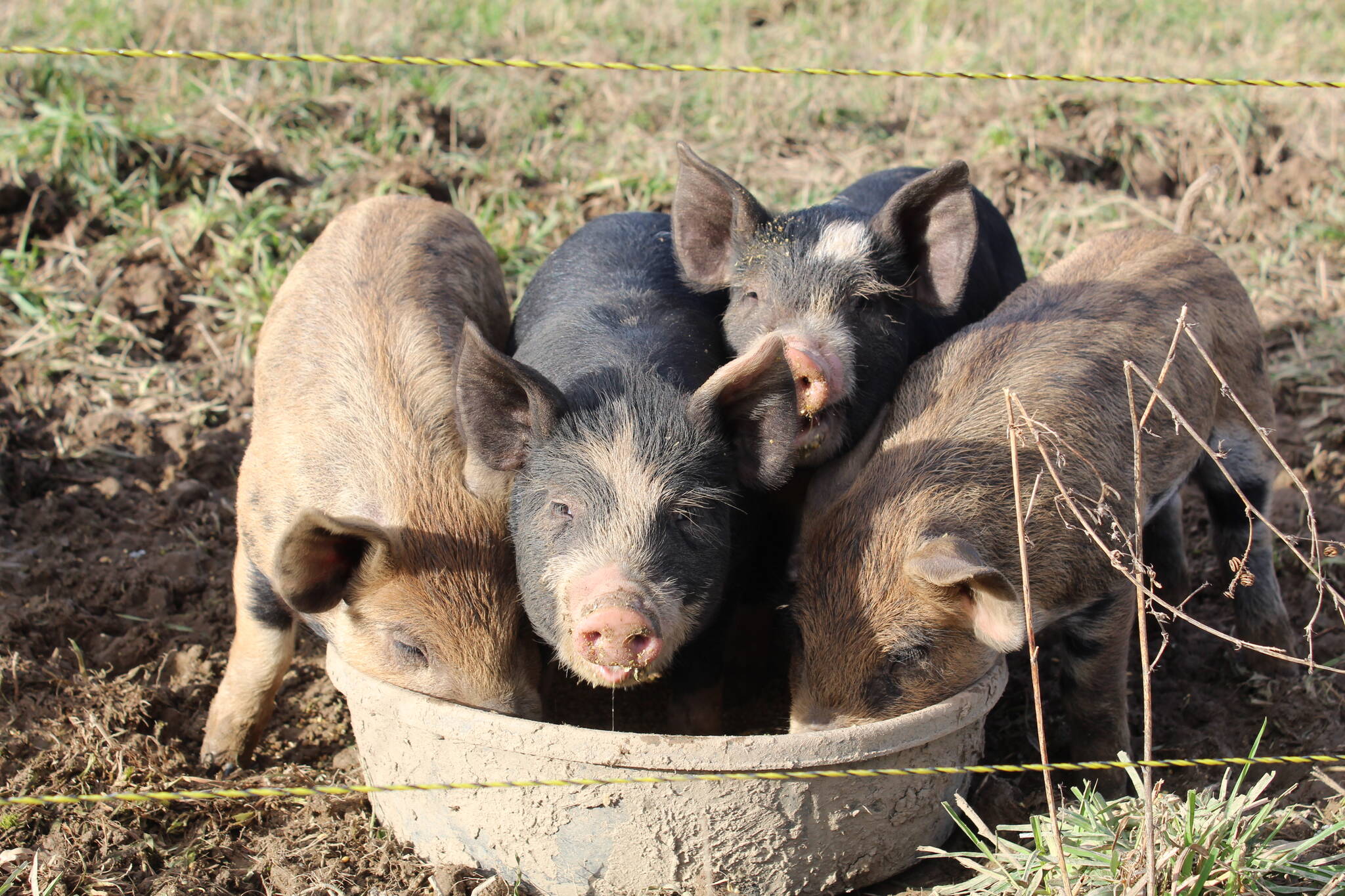When Brooke and Bart Crowder purchased 70 acres of bucolic farmland near Fort Casey State Park last year, they expected life to settle down a little.
Bart has been serving in the Navy for the past 23 years, and the couple and their four children have moved all over the country — and the world — to follow his military career.
Approaching retirement, Bart was in search of a new pursuit, preferably one that would allow him to be his own boss and take care of his family while providing a challenge for his creative spirit. Moving from the family’s latest home in Anacortes to the Coupeville farm seemed to be the perfect opportunity.
Until Bart was deployed in May of last year.
Brooke said the deployment, Bart’s ninth, came as a surprise, especially as it seemed to throw a wrench into their new life just as plans for the ranch were coming together.
“We thought, ‘This is meant to be. We’ll just jump in,’” Brooke said. “And so we bought 11 cows, and we got pigs, and we got chickens, and we started raising all the animals, and then we find out two weeks before that they’re deploying.”
But despite the challenges of managing the new ranch and caring for their four children alone, Brooke said ranch life has been rewarding and rife with unanticipated benefits for the family.
“It’s been good, and stressful, and all the things in between,” she said.
Owning and operating a ranch is unlike anything the Crowders have ever done before. Neither Bart nor Brooke ever lived on a farm growing up, and according to the ranch’s website, they have lived mostly in suburban locations since starting their family.
They first moved to the ranch in September of 2020. Brooke said the first year — what she called the “infrastructure year,” or the year of getting the operation running and establishing themselves — has come with a high learning curve.
The couple is committed to a type of farming called regenerative agriculture, an approach to farming and ranching that prioritizes conservation, topsoil regeneration and resilience against climate change. Since Bart was deployed shortly after they purchased their livestock, Brooke has had to learn and implement the best practices for the land largely on her own.
“It’s been a huge learning process, and (Bart) will eventually come home (this) year, and I’ll have some teaching to do,” she said.
For Brooke, a typical day in her new home begins with getting her children off to school, followed by feeding chickens, changing fencing lines and rotating the animals around the property. She said figuring out where and how to move the animals has been a process of “trial and error.”
Beyond simply caring for land and animals, a ranch is also a small business. Managing the business side of things, including social media with some remote help from Bart, has become another item on Brooke’s lengthy to-do list.
“There’s not enough of me,” she said with a laugh.
Still, though the transition to rural life has presented challenges for the family, especially since Bart’s deployment, Brooke said they have benefited from the move, as well.
Owning the ranch has allowed them to implement the kind of sustainable agriculture practices that have long-term benefits for the land. And since their house on the ranch is smaller than their previous house in Anacortes, the family members are seeing a lot more of each other.
“I think everybody actually even feels a little bit closer,” Brooke said.
Though Bart has enjoyed his time in the Navy, Brooke said she feels the ranch will be good for him as he transitions into the next chapter of his life when he returns from deployment. After all the moving the family has done, the Crowders are ready to put down roots and build something of their own.


